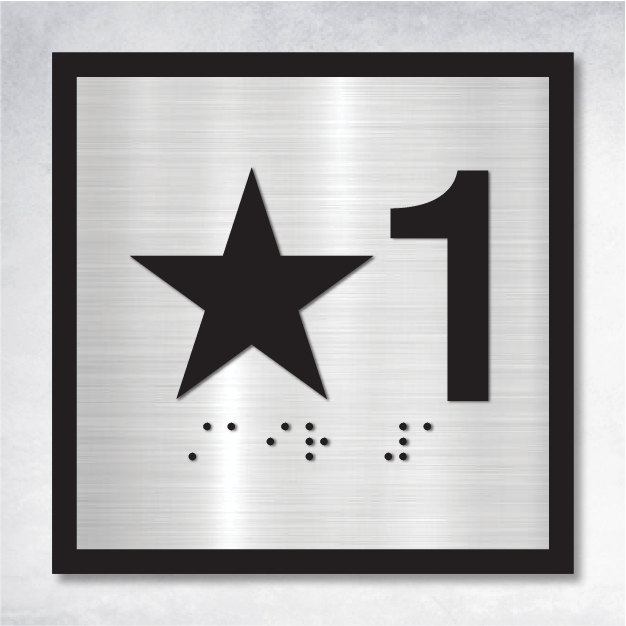
• Painted to chosen color
• Front plate: 1/4 in non-glare acrylic
• Painted to desired color
• Edges not painted unless explicitly specified
• Backplate and front plate edges not painted (unless specifically mentioned)
• Text, pictograms and braille is dimensionally printed
• VHB tape, Foam tape as you customized
• Shipment will be bulk packed unless specified
• Taxes and shipment to be included at checkout
• Tax exempt certificate can be provided
FAQs
What are ADA signs, and why are they important?
ADA signs are signage that complies with the Americans with Disabilities Act (ADA) regulations, designed to provide accessibility for individuals with disabilities. They are important because they help ensure that public spaces are navigable for everyone, including those with visual impairments, by providing clear identification and direction.
What materials are used for ADA signs?
ADA signs can be made from a variety of materials, including acrylic, metal, wood, and PVC. The choice of material often depends on the specific application, desired aesthetics, and durability requirements. All materials used must meet ADA standards for visibility and tactile elements.
What font styles are acceptable for ADA signs?
The ADA requires that fonts used on signs be sans serif and easy to read. Commonly accepted fonts include Arial, Helvetica, and Calibri. The text should not be overly decorative, bold, italicized, or condensed to ensure maximum readability.
Do all ADA signs need to include Braille?
Not all ADA signs require Braille. Braille and raised characters are only mandatory for signs that designate permanent rooms or spaces, such as restrooms or offices. However, it is recommended to include Braille on signs to enhance accessibility for visually impaired individuals.
How should ADA signs be mounted?
ADA signs should be mounted at a height between 48 and 60 inches from the floor to the baseline of the tactile characters. They should be placed on the latch side of doors and must be centered within a clear floor space of at least 18 inches by 18 inches to ensure accessibility for individuals using wheelchairs.




